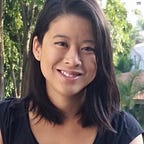GlobeMed’s Impact on My Practice
My passion for global health started before joining GlobeMed. One of the first service trips I took part in was to Cambodia funded by my philanthropist, physician aunt. The trip was motivated as a religious expedition to rebuild Buddhist temples after many were destroyed during the genocide by the Khmer Rouge, and after returning home, I felt a deep unrest in my life. Joined a few organizations and redirected my attention to focus on personal growth. After joining a global health organization, I felt some sense of relief finding others willing to dedicate their time and money on service work, although there was still a constant dissatisfaction at the impact I was making. There was still a lack of understanding by the volunteers of the impact or harm they were doing and discussions regarding our work were consistently introductory. I became just another student, lost in a crowd of 40 other students and volunteers. There were many questions, but because we either didn’t know how to ask them, or who to ask, the answers we received didn’t solve the problem and we weren’t being challenged to find them.
I remember the moment I learned about GlobeMed at the beginning of my junior year at Loyola. Attending the first meeting and having the exact discussions that I desired so deeply was a welcome change. Gobal Health. (Not) Medical Tourism. Pragmatic Solidarity. Ubuntu. Sustainability. Social Justice. Perseverance. Partnership. Health Care as a Human Right. With like-minded people, I knew I finally found a place where I could dedicate my efforts. At that time, GlobeMed was still very young, 17 chapters in the network, but the amount of enthusiasm, dedication, and hard work involved was enormous and was exactly the kind of organization that I knew I could get behind. Our chapter at Loyola was in its first official year, beginning our partnership with La Primavera, Guatemala. As an organization fresh on campus we were ready to run with fundraising campaigns, recruit students, and build our network!
Fast forward through my year as chapter co-president, two GROW trips, continuous involvement in other global health organizations (for perspective), building those “life skills” working for other companies, and then through the stretch of medical school from which I most recently graduated from. The first few years of medical school I went to the Caribbean to study, removed and remote from my fellow GlobeMedders, and downsizing greatly my volunteer work to focus on studying. The time that all alumni who go through Medical School are required to do in order to succeed, here is also where many feel the most unrest in our lack of ability to stay involved. How to alleviate this? Staying involved became yearly Summits, 2013’s Alumni Homecoming, the Chicago Alumni Regional Hub, and most recently the Alumni Association as we need to continue to expose and evaluate our commitments.
“…to the issue of social conscience, listening to others is the first step in any authentic commitment to social justice…such commitments can grow only out of direct personal contact with suffering people and the distressing social realities in which they live. We start by listening to the personal stories and experiences of the poor…” — A Sacred Voice is Calling, Dr. John Neafsey
Discovering your lifelong calling can be either before, during or well after our times as an undergraduate student and somewhere in that time GlobeMed shaped the way we pursued this. As an alumni, we can choose how much involvement GlobeMed meant and how we want to continue to be involved. For me as a family medicine physician, I still dedicate much of my practice to the core values we learned in GlobeMed: what it means to have competency, compassion, dedication and treat every community we meet with the natural instinct health is a basic human right. It is our responsibilities as health care providers to uphold this in our everyday interactions with patients.
How I will apply this to Global Health, as a resident physician, is an ongoing discussion with inner selves. As a resident, we are still learning how to become competent in medicine. During international electives, we only have the knowledge in our heads and the pocket guides we can fit in our carry-ons. We have certain experiences and great opportunities to understand how medical care is provided locally although for true collaborative medicine we must learn first the culture and system can we then aim to provide pragmatic solidarity.
This post is a pre-trip reflection during an international rotation during my Family Medicine Residency training and in reflection to the GlobeMed Alumni Association’s upcoming Digital Retreat: A Lifelong Calling. We look forward and invite all GlobeMed Alumni to join us on September 30th for a one day in person and virtual retreat via various online platforms. Sign up for the Digital Retreat via Eventbrite here.
